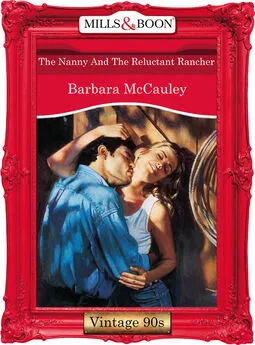Barbara Hambly - Dead water
- Название:Dead water
- Автор:
- Жанр:
- Издательство:неизвестно
- Год:неизвестен
- ISBN:нет данных
- Рейтинг:
- Избранное:Добавить в избранное
-
Отзывы:
-
Ваша оценка:
Barbara Hambly - Dead water краткое содержание
Dead water - читать онлайн бесплатно полную версию (весь текст целиком)
Интервал:
Закладка:
“Wretched newfangled patent Yankee locks on the trunks.” Hannibal flexed his long fingers, and shivered, though the night was gluily warm. “But worth the effort. They're full of old books, Bible tracts and collections of sermons . . . perhaps we should reclaim them and make a present of them to Mr. Quince.”
“They'll be heading back to the boat as soon as they think they're unobserved, then,” said January. He glanced up at the moon, trying to gauge how many hours had passed. “Would you do me a favor? Go back to the boat and see what they've done with the engines? See whether they've let the steam down—which will mean the boat's here until noon at least—or just banked the furnaces so they can get up steam in a few minutes. You don't need to rush coming back,” he added, taking a second look, by the reflected glow of the single door-lantern across the street, at his friend's rather drawn face.
“ Will ye reach there by moonlight / If your horse be good and your spurs be bright, ” said Hannibal, saluting. “I will be bloody, bold, and resolute . You be bloody, bold, and resolute as well, amicus meus, and watch your back. We may be away from the waterfront, but personally, I wouldn't trust myself anywhere in this town—or anywhere around our precious friends up in that hotel-room.”
With that he departed, and January didn't begin to worry about him until cock-crow. The light burned steadily in the window until almost dawn; by four, first light began to flush the sky above the tangled morasses of cow-pastures, swamps, and willow-choked ravines that stretched out behind the town. Despite the high, breezy situation of the town and the oil of citrus January had smeared on his face and hands, mosquitoes whined around him. Hannibal, he guessed, had rested when he returned to the Silver Moon —it was a long walk up and down a steep hill, and though the fiddler had lost the hoarse, wet cough of consumption last year, one never really recovered from the disease.
But when the shapes of trees and houses began to emerge from the blackness of night—when, as Ayasha quoted the blessed Koran, “a white thread could be told from a black one”—January began to wonder whether his friend had made it through the noisome alleys of the district Under-The-Hill in safety. They'd passed through a little after midnight coming here, but they'd been two men together, Hannibal's whiteness protecting January from molestation and January's size protecting Hannibal. Though Hannibal wasn't visibly wealthy, January was well aware that the men who haunted such dockside establishments would kill a man for his watch and boots.
Even worse, the thought crossed his mind that Rose might have come on Hannibal resting on deck and said, “I'll go instead. . . .”
The thought brought him out in a cold sweat. Had she tried to come up here sometime during the small hours? Tried to pass through those filthy alleyways that were darker than the inside of a black cow?
He looked back at the nearest house. Servants were waking up. At certain times of the day a black man could idle unremarked, but early dawn wasn't one of them, not across the street from the best hotel in town. He moved off to loiter behind the corner of a closed-up wine-merchant's store halfway down the block.
A porter came out of the hotel and began sweeping the steps. A cab drew up, depositing the stumpy black forms of Mr. Rosenfeld and Mr. Goldblatt from the Silver Moon, with more luggage than January could have imagined possible. He wondered how much of their money Byrne the gambler had managed to lift.
All over town, cocks shrilled the coming morning, above a rising, insistent twitter of lesser birds. Wagons passed on the street, heading to the wharves. A burly-bearded gentleman emerged from the hotel, nearly dragging his dainty wife into the waiting cab.
The grass went from indistinct gray to clearest emerald, and a cart rattled up the street with cans of morning milk for the patrons of the hotel. Smells wafted from the hotel kitchen and that of the house across the way, first smoke, then bacon. A dog barked.
Do I go back to the boat and risk losing them? January wondered. If by some chance they weren't returning—if they'd had other trunks delivered to another location in Vicksburg, for instance . . .
Chambermaids threw open the hotel windows and hung bedding out to air.
When one did so in the room where Weems and/or Fischer had passed the night, January realized, with sinking heart, that the burning lamp had been no guarantee that the room was occupied.
He scrawled a quick penciled note in his memorandum-book— I shall be at the American Hotel in Memphis on the 7th , but it didn't really matter what the message was—and hastened across the street with it, entering the side door of the lobby and hurrying to the desk with the air of one who has strode fast and far. The clerk was just polishing the smooth oak counter, black instead of white and an older man than had admitted Weems and Fischer last night but just as smart-looking.
“May I help you?”
“I have a message here for Mr. Weems, that come in last night.” January held up the note. “Weems may not be the name he signed under,” he added as the clerk frowned over the register. “He travelin' with a lady, taller'n him. . . .”
“Must be Mr. and Mrs. Gordon,” said the clerk. “They're the only ones signed in last night. Charlie, the night man, signed 'em in, and there's a note here that they have to be out early, so they paid up right then.”
And slipped out the back when nobody was looking?
Damn, damn, damn. . . .
“Thank you. You didn't happen to see 'em leave?”
The clerk shook his head. “That may have been the couple that left an hour ago. I didn't recognize them, so they might have come in last night. But she wasn't taller than him.”
January frowned as if puzzled, though a rush of suspicion washed over him. “That's funny, I thought that's what my master said . . . I ain't never seen 'em, myself. He said for sure they'd be carryin' green-and-black-striped portmanteaux. . . .”
“That's them,” agreed the clerk promptly. “They sent the boy for a cab around four-thirty, said they had to catch an early boat.”
“Thank you,” said January again, cursing himself for not having looked more closely at the luggage borne behind the bearded gentleman who had emerged from the hotel, and his fluttery, veiled wife. “I reckon I'll catch 'em down by the landing.”
He left through the yard and the alley, loitering a little, though he couldn't imagine that if Hannibal had returned—or if Rose had taken his place—one or the other of them wouldn't have come seeking him. In any case, neither accosted him as he circled back to Adams Street. Deeply worried now, he made his way through the quiet neighborhoods and up and down the rolling slopes of the hill, back toward Clay Street and the levee.
As he came around the corner onto Washington Street and looked down at the waterfront, he froze.
It was barely six in the morning—activity was only just beginning to stir among the boats, wood-piles, heaps of cargo along the mushy fringes of the river; the time when boats were just beginning to take on their cargoes and work up the final heads of steam.
But the Silver Moon was gone.

TEN
He ran down to the landing as if, contrary to reason and all evidence of his senses, the steamboat were still in view and he could overtake her.
Brown water lapped sullenly on the clayey slope where the landing-stage had rested. Gouged and trampled mud marked the coming and going of feet. His friend Abishag Shaw of the New Orleans City Guards might have been able to pick Hannibal's tracks, or Rose's, from the mess, but to January it was only a muck of slop and puddles.
Shit, he thought, and his mind wouldn't work further than that. Shit, shit, shit.
“When did she leave?” he asked one of the stevedores heaving wood onto the Concord, another stern-wheeler that had—to judge by the activity on her deck—just come in.
“'Bout a hour ago.” The man paused in his course toward the wood-piles on the landing, wiped the sweat from his face with the green bandanna that was all he wore above the waist. “They drawed out the fires and damped 'em but never let the steam go all the way down. Musta cost 'em heavy, waitin' like that most of the night, burnin' up wood. Then this couple come in a cab from town, get on board, an' away they go.”
Shit.
January was, he reflected furiously, exactly where he'd spent most of the past three years trying not to be: in the middle of cotton territory, without five dollars in his pockets. Hannibal had carried money—in a fit of worry about Rose's safety, he had left his cash with her.
Shit!
None of the other vessels at the landing looked capable of overtaking the Silver Moon . Not upstream on a low river, among the snags and shallows around Vicksburg. If worse came to worst, he supposed he could heave wood to get himself back to New Orleans, and pick up a few dollars extra playing for passengers at night, always supposing he could find a boat where someone had a guitar. . . .
And then what? Wait for Rose and Hannibal to return? If they returned? When would that be?
Twenty-five hundred dollars was due to Rosario DeLaHaye for the house on Rue Esplanade on the first of September, just over sixty days away. If that wasn't paid, January would be back living in the garçonnière behind his mother's house—if she were willing to evict the boarder currently occupying the room where January had grown up. Knowing his mother, he wasn't entirely certain she would be. She'd been of the strongly-voiced opinion that he and Rose should have used their money to open a construction business, or to buy slaves to rent out to others.
The prospect of relying on his mother for the cost of a bowl of beans, much less a place for himself and Rose to live, turned his stomach.
And after that?
He took a deep breath and raised his eyes to the willow-gray line of DeSoto Point, where the river made a hairpin bend west. “Where could I catch that boat, goin' overland?” he asked.
The stevedore grinned. He was a man of about January's age, squat and ape-like with smiling eyes. “Whoever on board, you must want her pretty bad,” he said.
January thought of Rose. Of the school that was her dream, and the scrabbling life that he wanted to save them both from. “I do,” he said.
“Then you head on straight north up Chickasaw Bayou.” He pointed along the waterfront, along the outer edge of the bend around DeSoto Point. “You cross the Yazoo River, follow it along left through the swamps till you find Steele's Bayou. That'll put you out above Miliken's Bend. It's ten, twelve miles as the crow fly, an' I guarantee you, that boat'll take so long proddin' through them bars around the islands in the bend there, you should catch 'em with time in your hand to spare. You got food? Water?”
And when January shook his head, the man only sighed, as if at a child who'd set out to run away from home with no more than a biscuit in his pocket. He wore, January saw, pinned to his belt-loop the tin badge of a slave who was rented out—who would come home every evening to his master and hand over his wages, the way January's mother wanted her son to do. Leading January to the pile of cordwood that sheltered the lunches of the dock-workers, he handed him a stoppered gourd and a bandanna bundle that smelled of cheese and fresh-baked bread.
Читать дальшеИнтервал:
Закладка:








